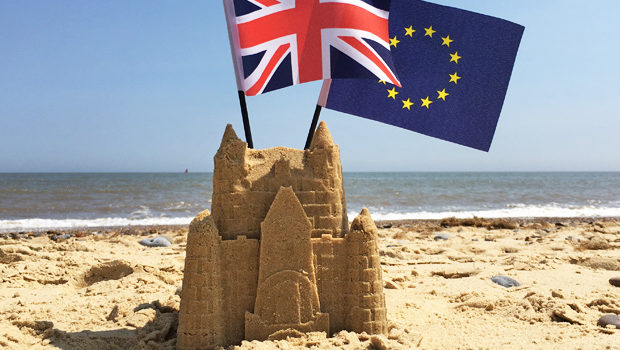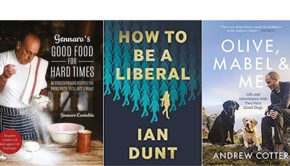Ten reasons to be cheerful in publishing
The Brexit vote has led to anguish in the industry—but as publishers prepare for their summer break, here’s why we should be looking ahead with confidence
1 Print sales have soared…
Who said the print book was dead? Nielsen BookScan figures show that book sales in the first six months of the year rocketed by 9.3% on 2015—the biggest half-year rise in 14 years. Cookbooks and colouring books have led the way, but sales growth has been spread right across the market.
2 … And ebooks are doing well too
It’s sometimes reckoned that that the renaissance of print sales is the result of a backlash against ebooks. But it’s not that simple, and ebook sales are holding up pretty well too. Nielsen BookScan data presented at the IPG’s recent Digital and Marketing Quarterly showed that while their growth might have slowed, ebooks are continuing to sell very well in fiction in particular.
3 Publishers are closer to readers than ever before
Digital technology has pulled down the barriers between publishers, authors and readers. Websites and social media promote mutually beneficial interaction—and there’s a chance to not just talk to readers but sell to them. As we noted in our last newsletter, the direct-to-consumer channel is a huge opportunity in the years ahead if publishers can get their web offers right.
4 Supply is richly varied
Slicing, dicing, subscribing and bundling: just four of the new ways in which publishers can supply their content to consumers now. The advent of new digital platforms has made for great flexibility in the way readers will spend their money. Bundles of print and digital books and monthly subscriptions are among the delivery models that are likely to grow in popularity in the years ahead.
5 Audio is booming
Audiobooks were once the preserve of car stereos and the visually impaired. But digital downloads have brought them to a much wider audience, making audiobooks available on smartphones in seconds with a few swipes. BookScan says audiobooks accounted for 5.3% of all book sales in the first few months of this year, nearly double the 2.8% of the same period in 2015.
6 Impulse buys are rising
BookScan’s data at the IPG event also suggested that 32% of consumers now buy ebooks on impulse, up from 25% two years ago. Social media like Facebook means they see more and more recommendations from friends and family, prompting them to download to their e-reading devices.
7 Choice is enormous
It is safe to say that more books are available to consumers than at any point in history. Ebooks and print on demand mean that content can be kept alive forever, and while that makes for bewildering choice, it provides publishers with many more sources of revenue. By opening up the niches of the market, it is good news for independents—in both publishing and bookselling—in particular.
8 The next bestseller is just round the corner
Not even the most optimistic of illustrators would have guessed that colouring books for grown-ups would sell in such extraordinary quantities last year. It goes to show that bestsellers come as much from word of mouth and societal trends as from brand authors and massive marketing campaigns. Where will the next big thing come from? It could be you.
9 We will survive Brexit
OK, so publishing has by and large been dismayed by the vote to leave the European Union—but there’s no need to dwell here on the negatives. Instead, here are a couple of positives: the exchange rate will boost exports, and the turbulence gives publishing a chance to champion its cause in government. As Harbottle & Lewis partner Shireen Peermohamed said at the Bookseller’s recent Brexit meeting: “With this uncertainty there does come opportunity… with issues relevant to the industry including copyright and VAT, there’s real opportunity to talk about it and shape direction of travel.”
10 Books still matter
Despite all the competing entertainment, the book as a medium is incredibly enduring. It is as important and rich a part of our culture as ever—perhaps more so in these turbulent times.
Have a good holiday—and here’s hoping that when the Brits among us return in September, it will be to an open and inclusive UK and a thriving publishing sector.





